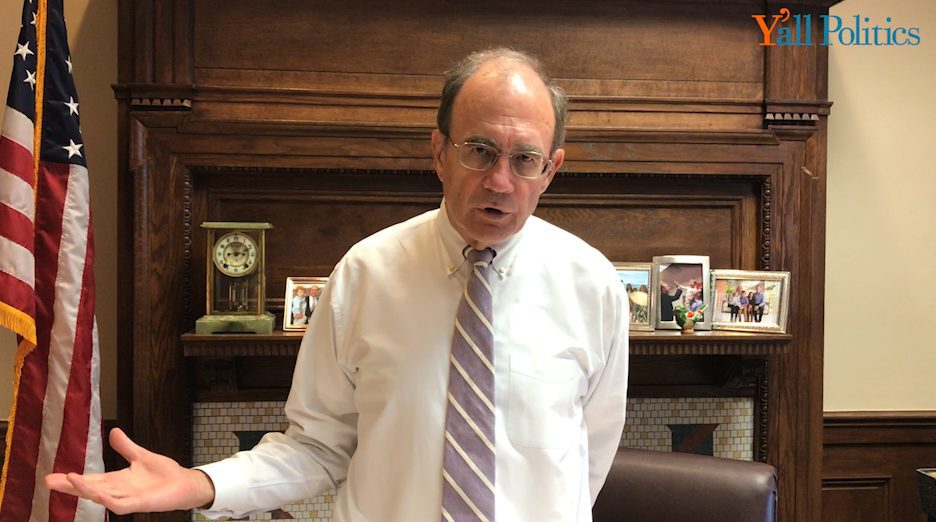
On November 3, Mississippians voted to pass a new state flag design. This action came after the Mississippi Legislature passed a bill to retire the former flag which depicted Confederate battle symbols, and replace it with a design yet-to-be determined.
The design to make it to the ballot was that of the “In God We Trust” flag. Over 72 percent of Mississippians voting, voted to adopt the new design.
“I thought it was a great step forward. Without a question it shows Mississippians were ready for a new flag for the future. It shows our emphasis is on the future and we respect each others opinions and we are ready to move forward,” said Hosemann.
He said that since the election, he has had calls from national companies complementing the state on moving forward.
RELATED: Mississippi to fly new state colors after voters adopt “In God We Trust” flag
In order for the design to become “official” the vote of the people must be ratified by the Legislature. Hosemann said, just behind the passage of a teacher pay raise in week one of the 2021 session, would be the bill to ratify the new state flag.
When the former flag was retired, it was done so in a ceremony at the Two Mississippi Museums. Hosemann said when the new design is ratified he hopes to have a similar ceremony where people can attend and watch the flag be raised up the flag pole at the state capitol.
Hosemann said this new flag could be a large part of increased economic development in the state.
“Almost every economic developer has called me before, during and after to tell me that was a tremendous step forward that and that they had issues before,” said Hosemann. However, the progress doesn’t end there.
While the new flag is now brining more people together, Hosemann added that will now allow for the state to continue education and workforce training programs to make Mississippians more versatile for work.
He said an educated workforce, dual credits, and a restructure of tax incentives are some of the issues the Legislature is working on in order to bring more jobs to the state.











